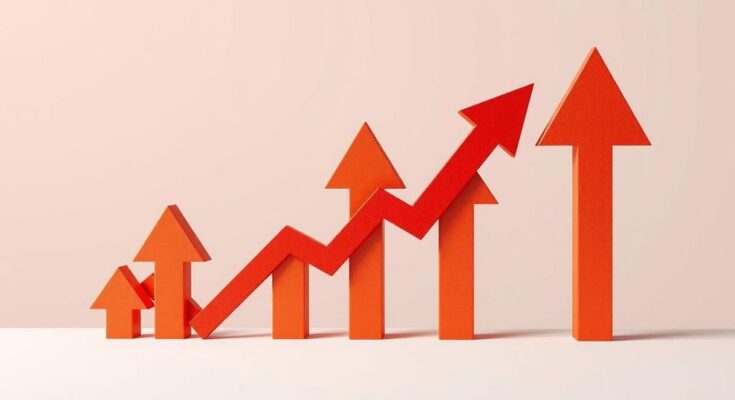Brazil’s annual inflation has risen above 5% for the first time in over a year, reaching 5.06% in February, significantly exceeding the central bank’s 3% target. The central bank is expected to raise interest rates to combat this inflation. Consumer prices showed a monthly increase of 1.31%, attributed primarily to housing and education costs. The rising cost of food has also affected President Lula’s popularity, prompting government action to reduce food import taxes.
In February, Brazil’s annual inflation surpassed 5% for the first time in over a year, reaching 5.06% in the year ending that month. This increase is significant as it remains well above the Brazilian central bank’s inflation target of 3%, plus or minus 1.5 percentage points. The rise in consumer prices represents the highest annual inflation rate since September 2023, as reported by the national statistics agency IBGE.
The central bank has been progressively raising interest rates since September to combat inflation. Following an anticipated decision in the upcoming policy meeting scheduled for March 18-19, the bank is expected to implement a third consecutive rate hike of 100 basis points, taking the benchmark Selic rate to 14.25%, the highest in over eight years.
In addition to the annual increase, consumer prices rose 1.31% month-over-month in February, marking the highest monthly growth since early 2022 and the highest for February since 2003. This increase was attributed to higher housing and education costs, while the absence of one-time credits for household energy bills contributed further to the spike in electricity costs compared to January.
Food and transport prices also saw increases this month, contributing negatively to the overall inflation index. The effect of escalating food prices has strained the popularity of President Luiz Inacio Lula da Silva, prompting the government to reduce food import taxes last week, as he pledged to address inflation.
Economic analysts suggest that while domestic demand is weakening, the tight financial conditions may help keep inflation in check. However, they also indicate that the overall economic environment remains challenging for the first half of the year, based on the Purchasing Managers’ Index (PMI) data.
In summary, Brazil’s inflation exceeding 5% in February has prompted expectations of aggressive monetary tightening by the central bank. Recent hikes in consumer prices, especially in housing and education, coupled with rising food costs, present significant challenges for the government. As the central bank prepares for potential rate hikes, the economic outlook suggests continued pressures on inflation and domestic demand, affecting overall growth prospects.
Original Source: www.tradingview.com




